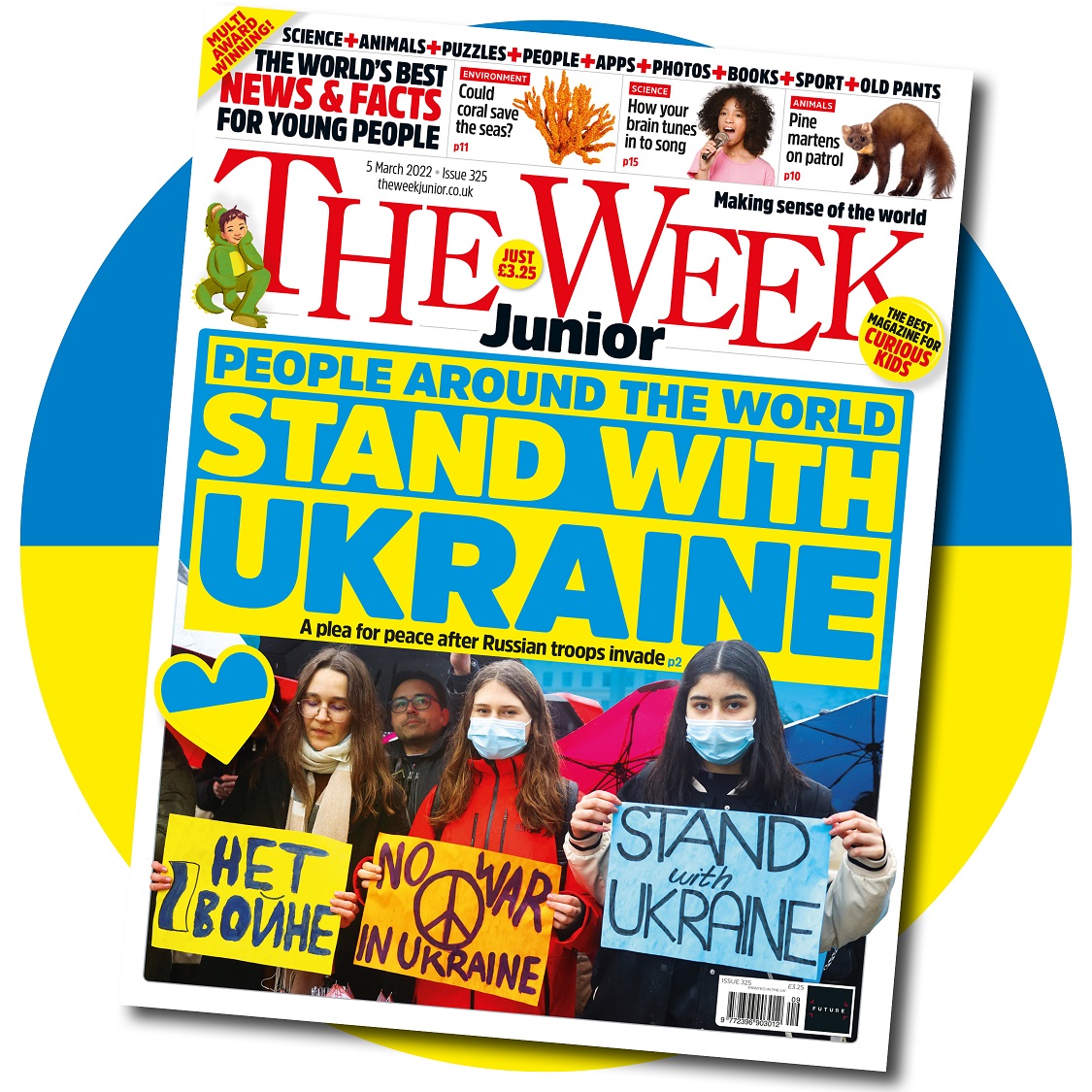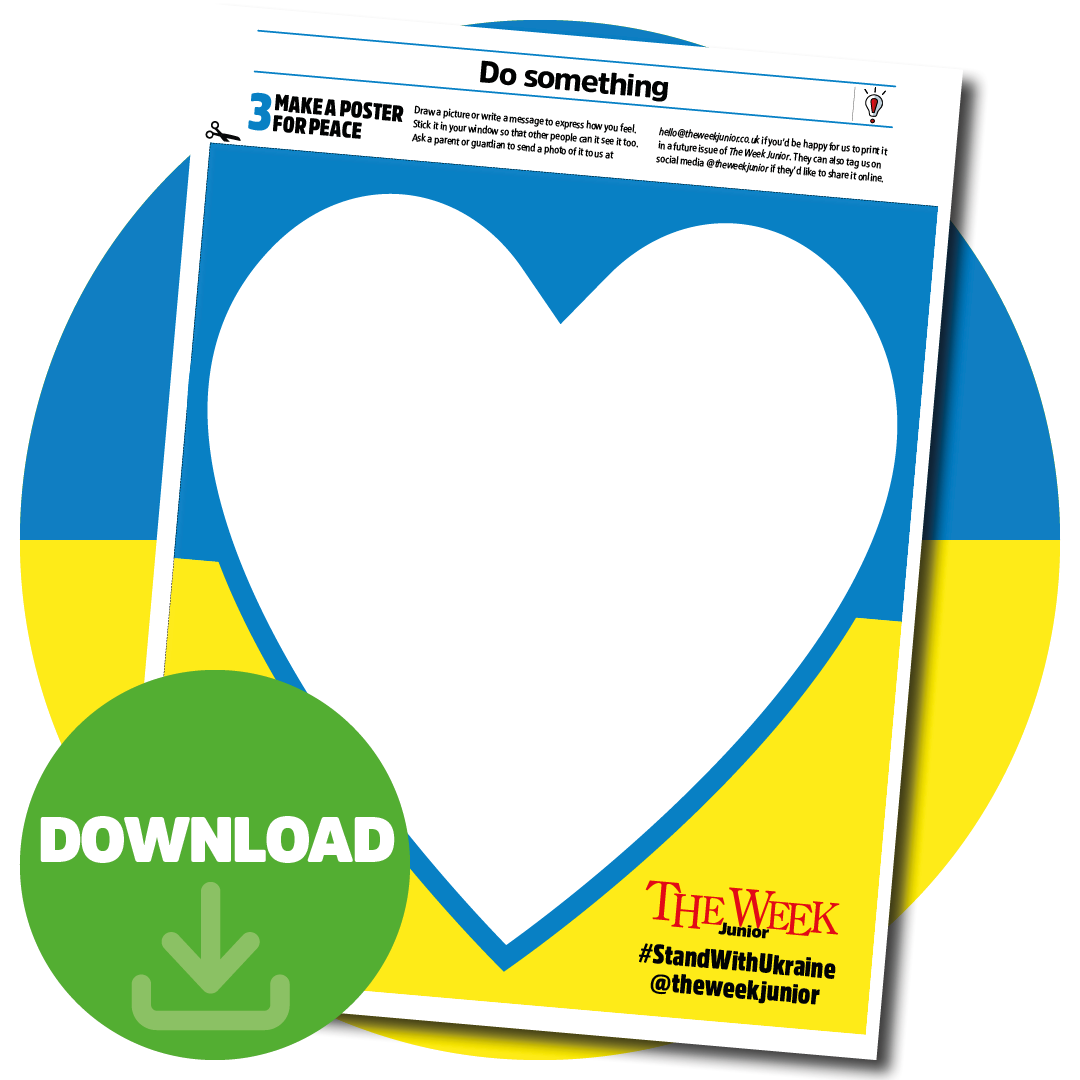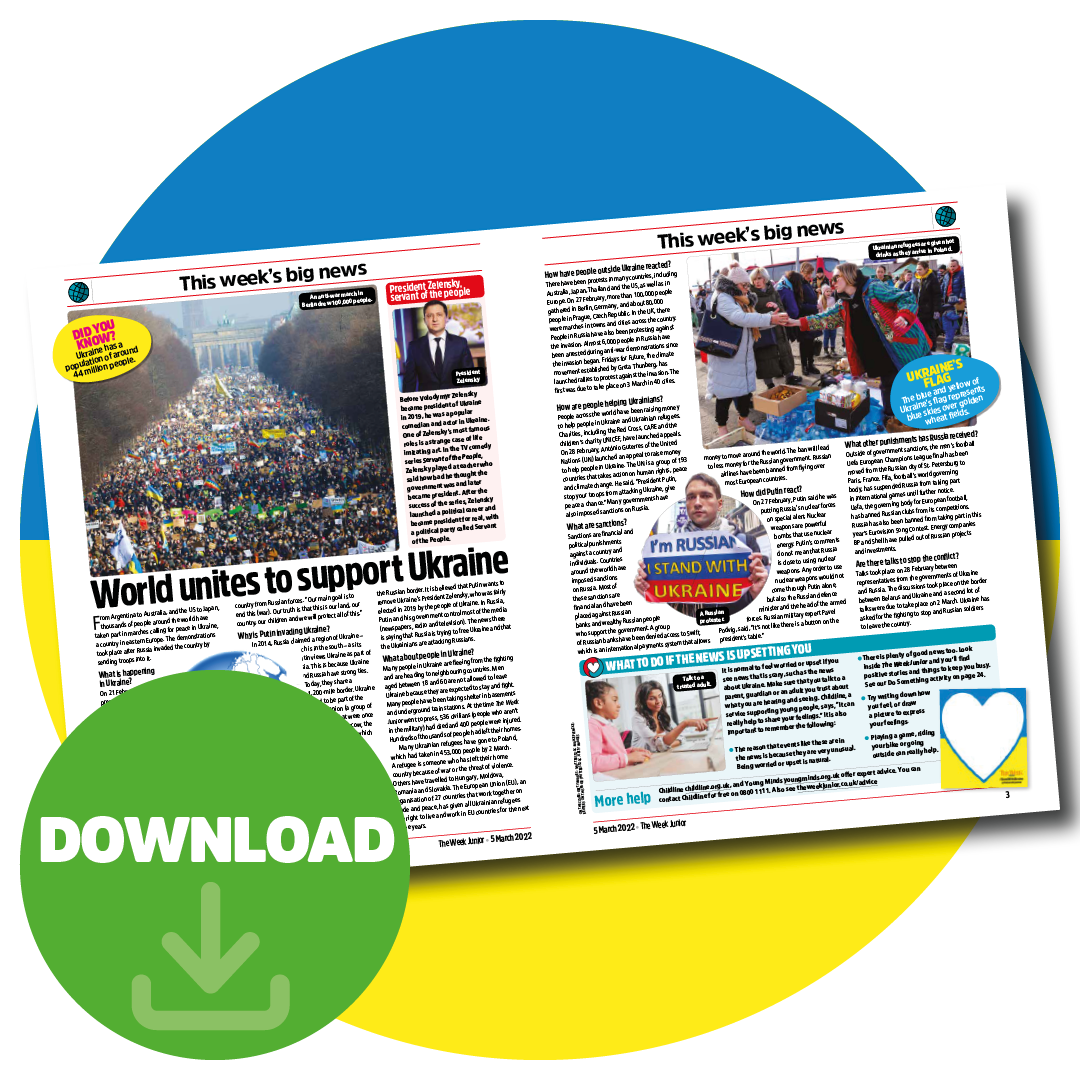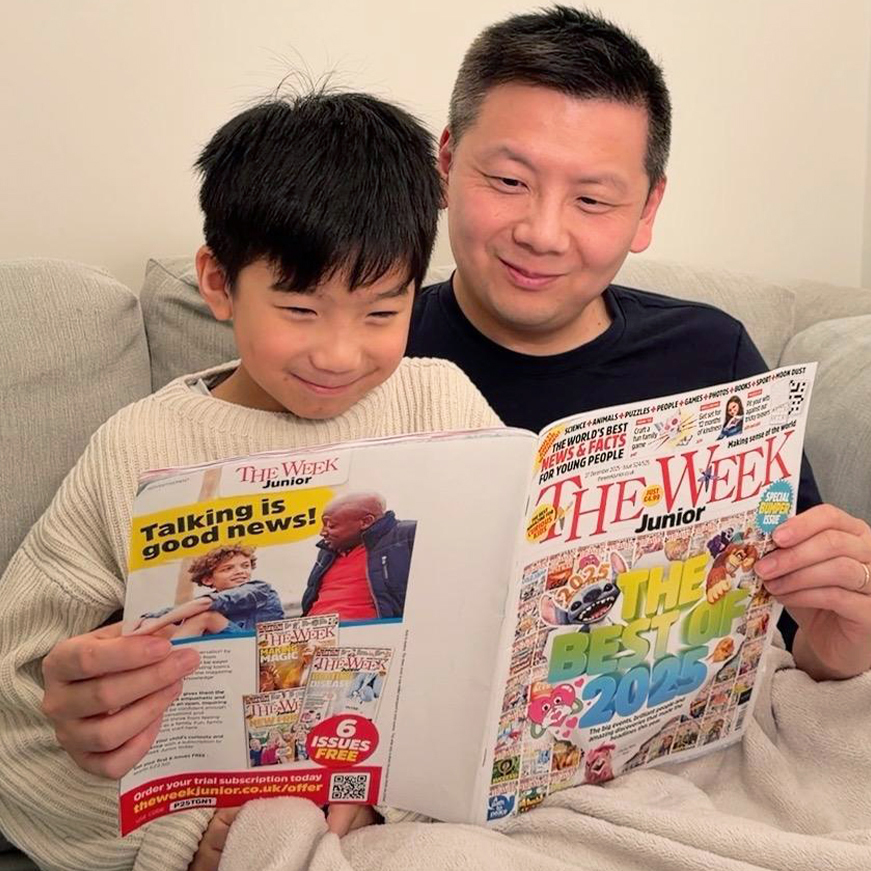How to talk to children about Ukraine

A message from our editorial director

Hello to The Week Junior community,
We know that many children have questions about what's happening in Ukraine and that they are likely to find the news upsetting. Here are a few tips for handling these sensitive discussions.
Acknowledge how they’re feeling.
It's important to acknowledge your child’s feelings and give them the time and space to express them. Feeling angry, sad, and worried is normal, and letting children talk about their response to these events will help them to process their emotions. You can tell them that you feel sad too and so do a lot of other people. If a child finds it difficult to explain how they’re feeling then you could suggest writing or drawing instead. If they feel angry, taking some exercise can help.
Look at a map together
Show them where Russia and Ukraine are. Explain that many countries around the world, including the UK, do not support this action and are taking steps to stop the conflict.
Don’t avoid difficult questions
Children need to know that they are taken seriously so it’s important to address their questions honestly and sensitively. You can say that although it can be difficult to talk about events like this, it is vital that people do and that you will do your best to tell them what they need to know. If there is a question you do not know the answer to, explain that it’s a complex situation and there aren’t always easy answers, but many people are working to find solutions and end the war.
Focus on the helpers
From the countries and charities sending food and supplies to the people taking in refugees, there are lots of examples of people who are helping those affected by the war. Let your child know that they can help too – see our suggestions below.
I hope you find this information helpful. We’ve written some tips for children too. You can read them together here.
With best wishes,
Anna Bassi

People around the world are helping those in need and taking action to end the conflict. Children can make a difference too, and by giving them a chance to do something practical and positive it might help them to feel a little bit better about the news they are hearing. Options include donating to a charity such as Unicef, Voices for Children or Save the Children; writing to their MP to demand more support for Ukrainian refugees; creating and displaying peace posters to show how they feel.


